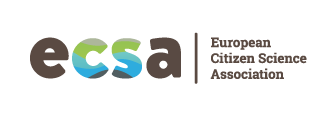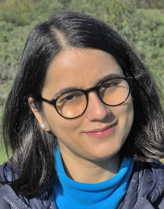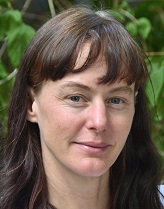by Muki Haklay; republished with permission from Po Ve Sham.
The journal Nature published today an editorial on citizen science, titled ‘Rise of the citizen scientist’. It is very good editorial that addresses, head-on, some of the concerns that are raised about citizen science, but it is also have a problematic ending.
On the positive side, the editorial recognises that citizen scientists can do more than just data collection. The writer also demonstrated an inclusive understanding of citizen science that encompass both online and offline forms of participation. It also include volunteered computing in the list (with the reference for
SETI@Home) and not dismiss it as outside the scope of citizen science.
Finally, it recognise the need to credit citizen scientists properly, and the need to deal with their personal details (and location) carefully. So far, so good.
Then, the article ends with rather a poor paragraph about ‘conflicts of interest’ and citizen science:
“More troubling, perhaps, is the potential for conflicts of interest. One reason that some citizen scientists volunteer is to advance their political objectives. Opponents of fracking, for example, might help to track possible pollution because they want to gather evidence of harmful effects. When Australian scientists asked people who had volunteered to monitor koala populations how the animals should be managed, they found that the citizen scientists had strong views on protection that did not reflect broader public opinion.”
I have already written here about the
attitude of questioning activism and citizen science in specific local issues, but it seem that motivations especially irk scientists and science writers when they look at citizen science. So here some of the reasons that I think the claim above is contradictory.
There are two reasons for this: first, that scientists themselves have a complex set of motivations and are under the same ‘conflict of interests’ and secondly, if motivations having such an impact on science in general, than this is true for every science, not just citizen science.
Let’s start with the most obvious one – the whole point in the scientific method is that it investigates facts and conditions regardless of the motivation of the specific person that is carrying out the research. I have a reminder of that every day when I go to my office, at UCL’s Pearson Building. The building is named after Karl Pearson (known to any scientist because of the
Pearson correlation), who was one of the leaders of
Eugenics, which was the motivation for parts of his work. While I don’t like the motivation (to say the least) it doesn’t change the factual observations and analysis of the results though it surely change the interpretation of them, which we today reject. We therefore continue to use Pearson’s methods and science since they are useful despite of the motivation. We have detached the motivations from the science.
More generally, scientists like to believe that they are
following Mertonian Norms and that they are ‘disinterested’ in their research – but
listen to some of the episodes of the BBC Life Scientific and you discover that what keep them motivated to apply for research grants against the odds and to carry out long stretches of boring work are very deep personal motivations. They wouldn’t do it otherwise! Therefore, according to the paragraph above we should consider them conflicted.
Citizen Scientists are, of course, motivated by specific interests – they wouldn’t volunteer their free time otherwise. Look at the
OED definition of citizen science at the sources of the term, and you discover that the first modern use of the term ‘citizen scientists‘ was in a report about the Audubon effort to campaign about acid rain. The fact that it was activism did not influence the very careful data collection and analysis operation. Or take the Royal Society for the Protection of Birds (RSPB) in which ‘
Campaign with us‘ is the top option of ‘what we do’, and yet they run the valuable
Big Garden Bird Watch with results used in scientific papers and for policy. The source of the activism, again, does not influence the outcomes, or the quality of the science.
Is it some forms of activism that Nature have a problem with?
The value of using citizen science in cases such as fracking, air quality or noise is that the scientific method support a systematic, disinterested, and objective data collection and analysis. It therefore allows to evaluate concerns about a specific issue and check if they are justified and supported by the evidence or not. In the same way that the environmental impact assessment and report from the fracking operators are created from a point of conflicts of interest, so does the data that come from the people who oppose it. As long as the data is being collected in a rigorous way, with evidence to back that it was done this way (e.g. timestamp from the smartphone, as the article noted) the scientific approach can provide evidence if the level of pollution from the fracking site (or planned site) is acceptable or not. Arguably, the risk of falsifying the data or pressure to drop inconvenient observations is actually greater, in my view, from the more powerful side of the equation.
My conclusion is that you can’t have it both ways: either science work regardless of motivations or the motivations and conflicts of interest are central to every other piece of science that Nature report on.














